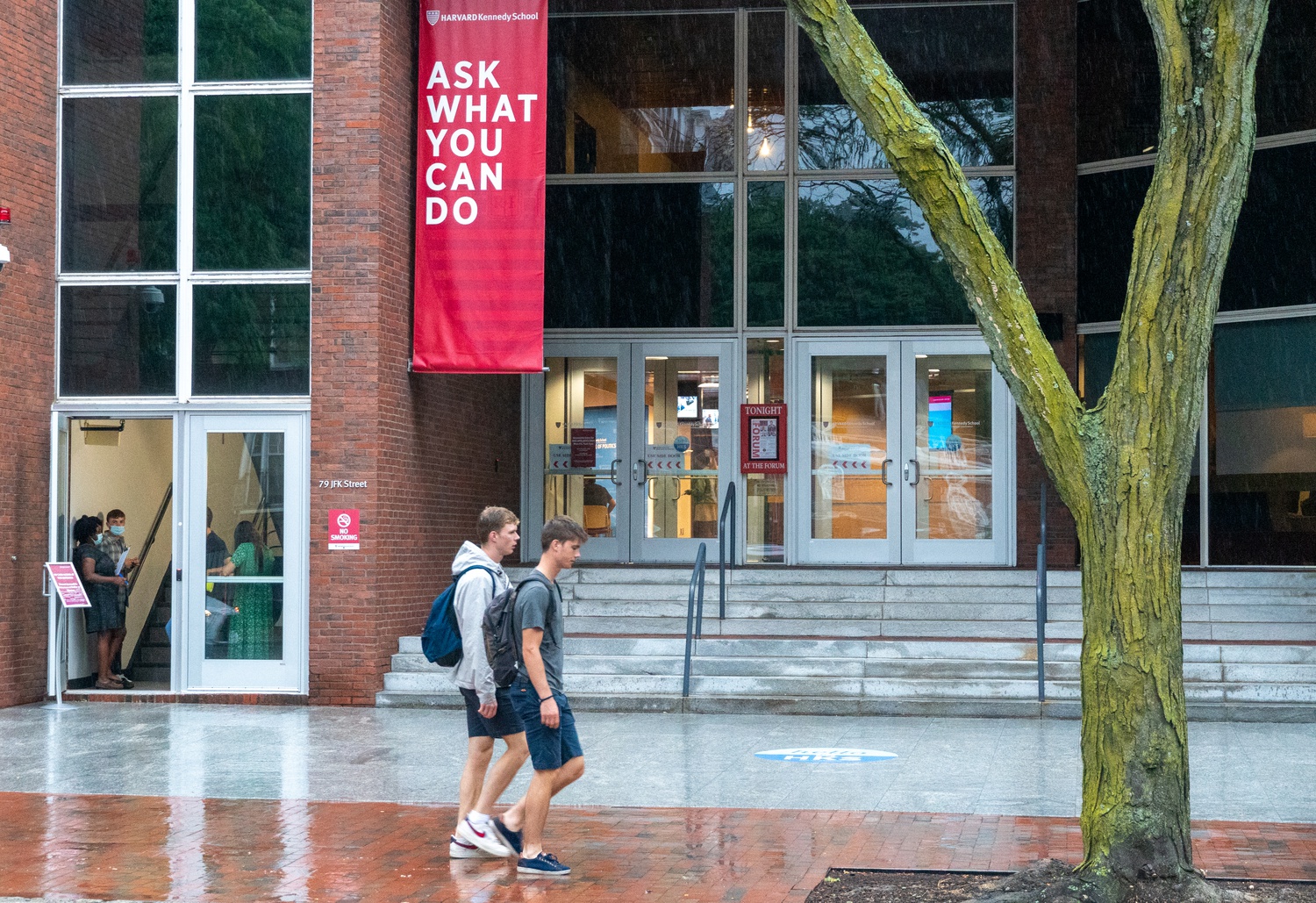
News
Summers Will Not Finish Semester of Teaching as Harvard Investigates Epstein Ties

News
Harvard College Students Report Favoring Divestment from Israel in HUA Survey

News
‘He Should Resign’: Harvard Undergrads Take Hard Line Against Summers Over Epstein Scandal

News
Harvard To Launch New Investigation Into Epstein’s Ties to Summers, Other University Affiliates

News
Harvard Students To Vote on Divestment From Israel in Inaugural HUA Election Survey
Afghan Journalist Sami Mahdi Discusses Media Under the Taliban at Shorenstein Center Event

Afghan journalist Sami Mahdi discussed the future of the media in Taliban-controlled Afghanistan at a virtual event hosted by the Harvard Kennedy School’s Shorenstein Center on Thursday afternoon.
Thursday’s discussion, moderated by Charles M. Sennott, the CEO of the non-profit news organization GroundTruth Project, took place just over a month after the Taliban seized power in Afghanistan following the U.S. military’s exit from the country.
Since regaining power, the Taliban has worked to suppress journalists throughout the country, including assaulting reporters covering protests in Kabul. More than half of Afghanistan’s media organizations have discontinued operations since the Taliban takeover, according to the New York Times.
Mahdi said Thursday that the Taliban seeks to exert control over the press with violent tactics, and declared the “scars on the faces of our journalists” are emblematic of the group’s relationship with the media.
“You will accept whatever Taliban gave you as a story, or you will be beaten up, or maybe killed or expelled from the country,” Mahdi said. “The only relationship the Taliban wants from media is [for the media] to become their mouthpiece and their puppets.”
Mahdi called the growth of a free and independent media in Afghanistan over the past 20 years — including the formation of about 170 radio stations across the country prior to the Taliban’s ascendance to power — a “very big achievement,” and credited the support of international allies for the expansion of the free press.
“It became the torch of liberty for our society. We didn’t have strong political parties like political opposition for the government. We didn’t have strong institutions. We didn’t have a strong parliament. We didn’t have a strong civil society,” Mahdi said. “The media was kind of playing all these roles by providing platforms to all people and all sorts of voices from all backgrounds.”
The Taliban crackdown on Afghan media outlets has particularly affected female journalists. A recent report from Reporters Without Borders found that just 39 female journalists are still working in Afghanistan, compared with 700 last year.
Mahdi called the female reporters “courageous,” noting that it was “taboo” in traditional Afghan society for them to pursue media careers.
However, he said the Taliban’s recent ascendancy has been demoralizing for female journalists.
“When [the] Taliban came to power, one of the first things they did was to take off all female reporters and presenters of RTA, our state-owned TV channel,” Mahdi said. “This discouraged all other female presenters and reporters all across the country because they knew that Taliban who are not respecting any laws, are in control, and their lives are at risk.”
Mahdi said the U.S. and other countries should engage with Afghan journalists in order to protect the country’s free press.
“Having a platform outside the country is very important now. They will be connected to journalists on the ground to tell the truth,” Mahdi said. “But those journalists who are on the ground will not be able to publish stories, under [their] own names, and on those outlets [that] are still in Afghanistan.”
As an example, Mahdi said reporters were necessary to ensure humanitarian aid is used properly.
“The expenditure of these aid monies should be monitored by Afghan media,” Mahdi said. “That’s how Afghan media could become a partner of the international community once again.”
—Staff writer Joshua S. Cai can be reached at joshua.cai@thecrimson.com.
—Staff writer Eric Yan can be reached at eric.yan@thecrimson.com.
Want to keep up with breaking news? Subscribe to our email newsletter.
